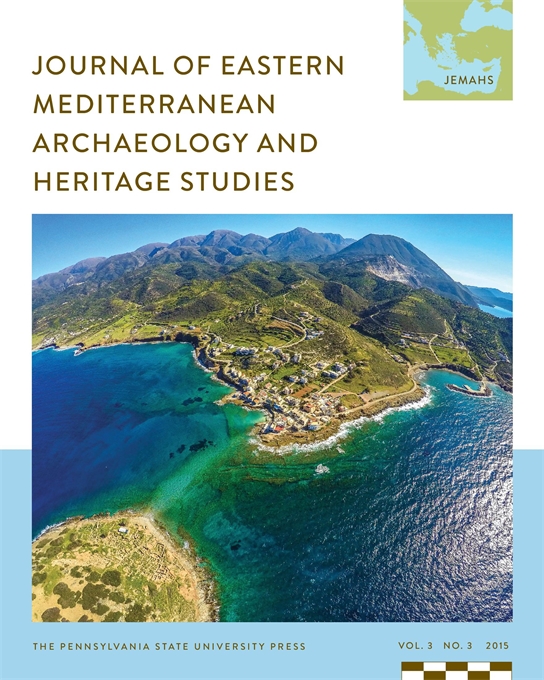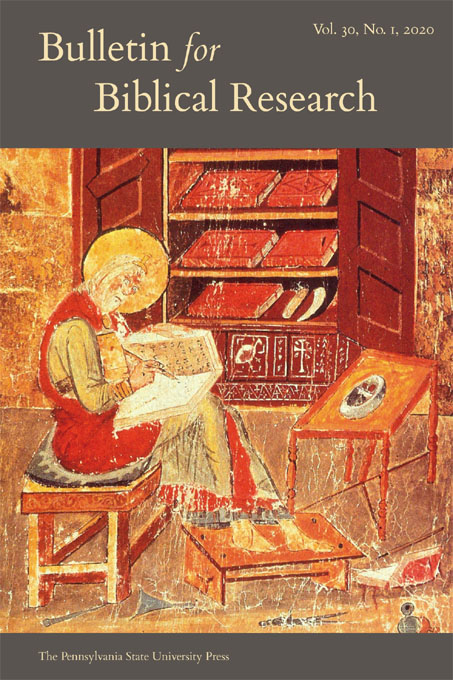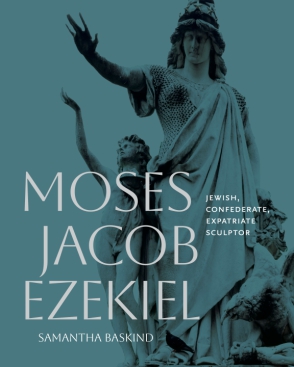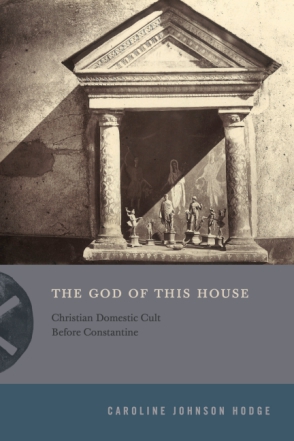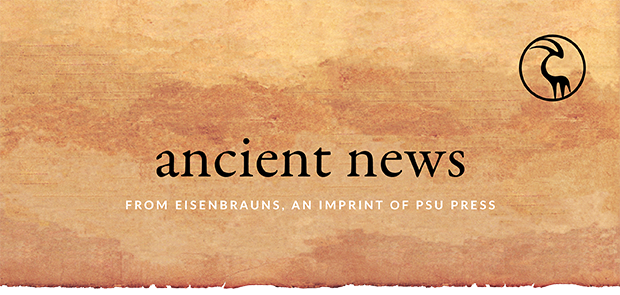
in this issue
general news
Welcome to the Fall issue of Ancient News.
It’s conference season, and we’re gearing up for a busy one! Stop by our booth at ASOR or AAR/SBL in Boston to browse books and pitch projects to our editor, Dan Waterman (appointment recommended). If you’re headed to DC for the Middle East Studies Association Annual Meeting, we’ll be there too! PSU Press will have a table with new titles from Eisenbrauns on display. And you can shop all of our virtual exhibits from the comfort of your home.
This month, we’re celebrating our recent publications in the Monograph Series of the Sonia and Marco Nadler Institute of Archaeology with a sale on the entire series! Save 40% when you use promo code MSARCH at checkout through 10/31.
Don’t forget to sign up for our sales and specials email list to get exclusive discounts.
Enjoy!
monograph series sale
save 40% with promo code MSARCH. Sale ends 10/31.
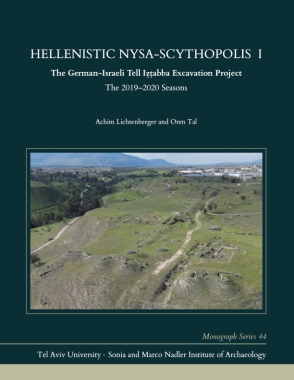
Hellenistic Nysa-Scythopolis I
The German-Israeli Tell Iẓṭabba Excavation Project, the 2019–2020 Seasons
$99.95 $59.99
This book deals with the first three campaigns of the German-Israeli Tell Iẓṭabba Excavation Project, conducted by the Institute for Classical Archaeology and Christian Archaeology / Archaeological Museum of the University of Münster and the Sonia and Marco Nadler Institute of Archaeology of Tel Aviv University, under the direction of Achim Lichtenberger and Oren Tal. Tell Iẓṭabba is the location of the town of Nysa (Scythopolis), established in the Seleucid period, a short-lived Hellenistic site founded under Antiochus IV in the 160s BCE and destroyed under John Hyrcanus in 107 BCE. The excavations shed light upon the material culture of this period, as well as producing evidence of earlier (Early Bronze Age) and later (Byzantine) occupation.
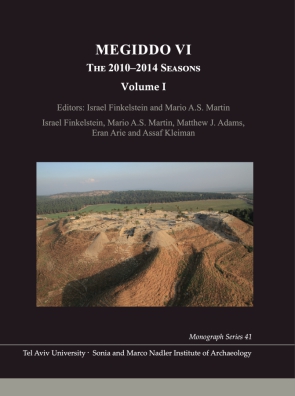
Megiddo VI
The 2010–2014 Seasons
$299.95 $179.97
Winner of the 2023 Hershel Shanks Award for Best Dig Report from the Biblical Archaeology Society
Megiddo, a key site for the study of the Bronze and Iron Ages, is unique among the sites of the ancient Near East. Featuring remains from over 30 settlements, Megiddo is strategically located on the main highway of the Old World, leading from Egypt to Mesopotamia. It is mentioned in important verses in the Bible and in Egyptian and Assyrian texts. Beyond archaeology, it is of great significance to the fields of the history of ancient Israel and biblical studies. The Tel Aviv University excavations at the site aim, through the implementation of modern methods, to achieve a full stratigraphic-chronological sequence, while placing special emphasis on studies related to the exact and life sciences.
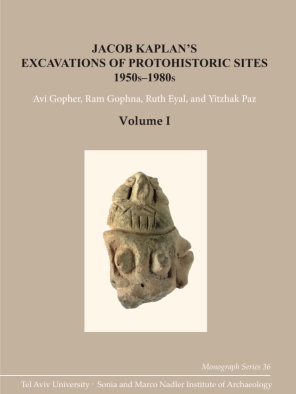
Jacob Kaplan’s Excavations of Protohistoric Sites, 1950s–1980s
$192.95 $115.77
Jacob Kaplan was a dynamic field archaeologist and an original researcher of the Pottery Neolithic and Chalcolithic periods in the Levant. This volume contains a selection of Kaplan’s unpublished fieldwork as well as a broad survey of the thoughts, theories, and considerations that have placed his work at the forefront of Israeli archaeology.
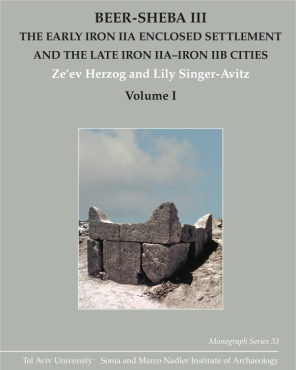
Beer-Sheba III
The Early Iron IIA Enclosed Settlement and the Late Iron IIA–Iron IIB Cities
$361.95 $217.17
“Rigorous publication of stratigraphy and meticulous analysis of the pottery has allowed the authors to conclude that the Iron Age IIA, a period crucial for the debate on the emergence of the Biblical ‘United Monarchy,’ extends from the mid-tenth down to the early eighth century, and that the evolution of the state in Judah was initiated in the Shephelah rather than in the highlands.”—Biblical Archaeology Review
new books
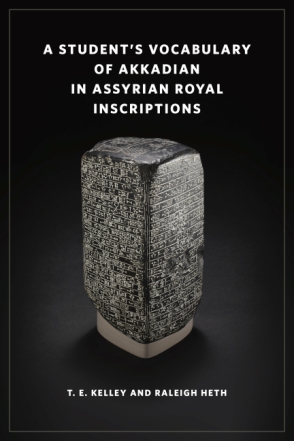
A Student’s Vocabulary of Akkadian in Assyrian Royal Inscriptions
T. E. Kelley and Raleigh Heth
“This Student’s Vocabulary offers a well-structured approach to learning and memorizing the vocabulary used in Assyrian royal inscriptions. Since it is organized according the frequency of attestations for each word, students will quickly make progress in their ability to read and understand texts from this fascinating corpus—and therefore will soon start enjoying their reading. And since the most frequently used words are also frequent in other corpora, this Student’s Vocabulary also facilitates the approach to other Akkadian corpora as well and consequently will prove helpful for any student of Akkadian.”
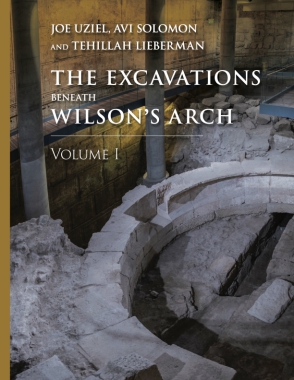
The Excavations Beneath Wilson’s Arch, Volume 1
Edited by Joe Uziel, Avi Solomon, and Tehillah Lieberman
“This significant work presents the most comprehensive and updated research—based on recent excavations led by the authors—offering unparalleled perspectives on the arch’s construction, historical significance, and the debates surrounding the chronology of Wilson’s Arch. With contributions from eminent scholars, it compiles an extraordinary array of findings, artifacts, and architectural remains, securing its place as a vital reference for anyone fascinated by Jerusalem’s captivating history and archaeology.”
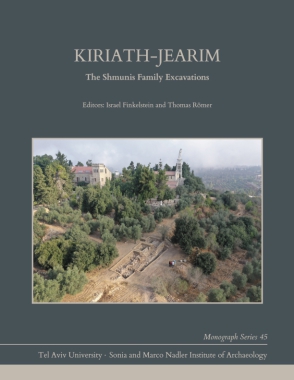
Kiriath-jearim
The Shmunis Family Excavations
Israel Finkelstein and Thomas Römer
This volume reports the results of the Tel Aviv University and the Collège de France’s excavations at Kiriath-jearim. The site, located on a strategic peak west of Jerusalem, is of crucial importance for the study of the archaeology and history of Iron Age Israel and Judah, and later, of Hellenistic and Roman Judea. Specific attention is given to the later phases of the Iron Age, attempting to shed light on the biblical tradition that the site accommodated the temple of the Ark.

Hellenistic Nysa-Scythopolis I
The German-Israeli Tell Iẓṭabba Excavation Project, the 2019–2020 Seasons
Achim Lichtenberger and Oren Tal
This book deals with the first three campaigns of the German-Israeli Tell Iẓṭabba Excavation Project, conducted by the Institute for Classical Archaeology and Christian Archaeology / Archaeological Museum of the University of Münster and the Sonia and Marco Nadler Institute of Archaeology of Tel Aviv University, under the direction of Achim Lichtenberger and Oren Tal.
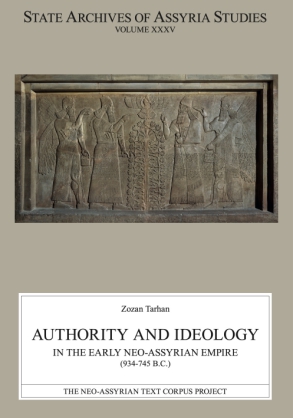
Authority and Ideology in the Early Neo-Assyrian Empire (934–745 B.C.)
Zozan Tarhan
This monograph explores royal authority and ideology in the early Neo-Assyrian Empire (934–745 B.C.). Tarhan investigates Assyrian royal ideology from multiple angles, considering its religious nature, the imperial mission, and the portrayal and different roles of the Assyrian king.
forthcoming
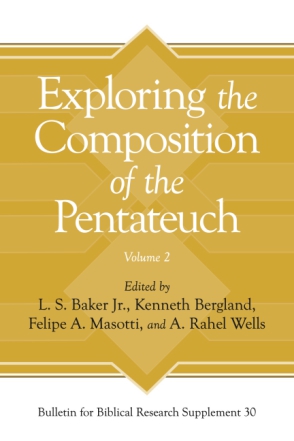
Exploring the Composition of the Pentateuch, Volume 2
Edited by L. S. Baker Jr., Kenneth Bergland, Felipe A. Masotti, and A. Rahel Wells
“This diverse collection of essays challenges both the status quo and cutting-edge theories in today’s Pentateuchal historical critical research. Its essays challenge oft unchallenged presuppositions related to the dating and literary coherence of the Pentateuch, offering a wide assortment of effective arguments engaging its non-Western literary coherence, literary reuse and dependence, ancient scribal and editorial practices, dialectical variation in diachronic linguistics, among other important topics.”
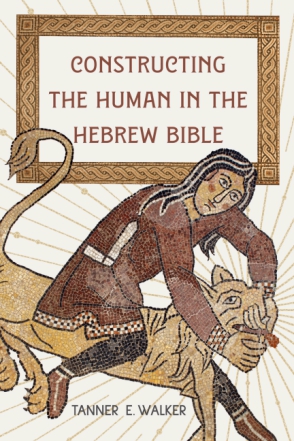
Constructing the Human in the Hebrew Bible
Tanner E. Walker
“Walker challenges scholars of the Hebrew Bible to take seriously the multiple ways these texts construct and deconstruct categories like human/animal. In the process, he provides compelling new readings of well-known biblical narratives in light of this larger question about constructed humanness.”
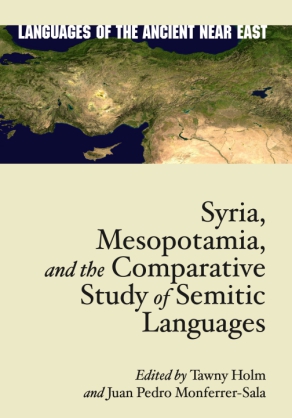
Syria, Mesopotamia, and the Comparative Study of Semitic Languages
Proceedings of the 7th and 8th Meetings of the International Association for Comparative Semitics
Edited by Tawny L. Holm and Juan Pedro Monferrer-Sala
This volume offers a wealth of perspectives on comparative Semitic linguistics emerging from the seventh and eighth meetings of the International Association for Comparative Semitics (IACS): the Madrid symposium (2016) was devoted to the role of Akkadian in the study of Comparative Semitics, and the Córdoba meeting (2019) focused on Syria at the historical crossroads of Semitic languages.
upcoming exhibits & events
Boston, MA
11/19–22
Washington, DC
11/22–25
Boston, MA
11/22–25
new from psu press
VIEW PSU Press News, the PSU Press newsletter| Control your subscription options |
